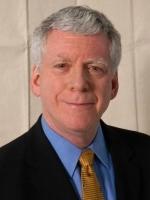FAQ: Why isn't RO better known?
Speaker A Requisite organization is not well known. And it's so not well known that there's a literature why it's not well known. Harold has written a piece about it, and Jerry Harvey has wrote piece ...
Transcript of the presentation video
NOTE: This transcript of the video was created by AI to enable Google's crawlers to search the video content. It may be expected to be only 96% accurate.
Speaker A Requisite organization is not well known. And it's so not well known that there's a literature why it's not well known. Harold has written a piece about it, and Jerry Harvey has wrote piece called The Elephant in the Parlor. And he's talking about, I think, some British colonel in colonial India or something who in his mansion had an elephant who would walk around and sometimes no one talked about it. People would come for dinner. And although here's this massive elephant, no one ever notices. And here within the field of organization development, we have this giant that no one's heard of. And it goes back to his notion. There is in psychiatry a concept called anaclitic depression. And the root of that is a Greek word, anaclesis, ana meaning on clesis, meaning lean. This is the origin of the English word clinic or incline. And anaclitic depression is what happens when something you lean on to make sense of the world as a place where you can get your needs met is pulled out from under you. Death of a loved one, being fired from your job, or, you know, because you lean on your partner, you lean on your job, your sense of identity. People who have a sudden loss of faith, and they're intensely religious, and something happens and they lose their faith in God, anecdotic depression. Well, think of and there are two things that we lean on. One of them is relationships, and the other is concepts. Concepts are the means we have to make sense of the world. Relationships are what helps us get our needs met. So how do people make sense of the work world, people outside of this room? It's about relationships. It's about and this will depend on one culture and another. It's how I get paid. It's all kinds of things. And many of my clients relationships, interpersonal relationships is what the work world is about. And now when you say, oh, by the way, even though your next door neighbor is your subordinate, even though your subordinate is your next door neighbor, if they're not working with full commitment, you need to fire them. Well, two things. One is this is not how you make sense of the workbook. This is a whole new set of concepts. This is a paradigm shift in the sense that unmet it. And you also say, if I fire Ricardo at the office Christmas party, no one's going to sit next to me, no one's going to be in relationship with me, because they're going to think of me as the mean son of a bitch who fired me. Now, the reality is long before, as soon as he's gone, people are going to say to you, well, it's a bad time. He got rid of him. That's reality. What you need to know is, you know the four managerial authorities who assign tasks to veto approval to all of that. Those four, elliot got them from the union. He didn't make them up. He said to the union members what do you need from your manager to make your work life multiple fulfilling? I'm tired of having this lazy person next to me and I'm carrying his load and my manager says I can't fire him. So every piece of requisite organization in itself is potentially analytically critical every piece of it. You look at it and say boy it worked this way because you can only think of that. This goes back to your point about gradually I can only think of one piece at a time and I think of it in the context of economic situation. You want me to tell my manager that it's wrong? Boy I'm going to get fired so quickly? Well what you're not thinking about is we've already trained your manager's manager to hold your manager accountable for listening to your best advice. So as a whole it's the most analytically supportive system there is but each piece is potentially analytically broken. And the other thing is this is the easiest system to bring in compare and cheapest. So all of the academics who by the way are the university is not a managerial accountability hierarchy. They're professors because they don't want to be employees. So all the theories that they write about this totally contradicts this wipes out so many industries. That's why it's not well known. It's too great.
Major organizations and consulting firms that provide Requisite Organization-based services





